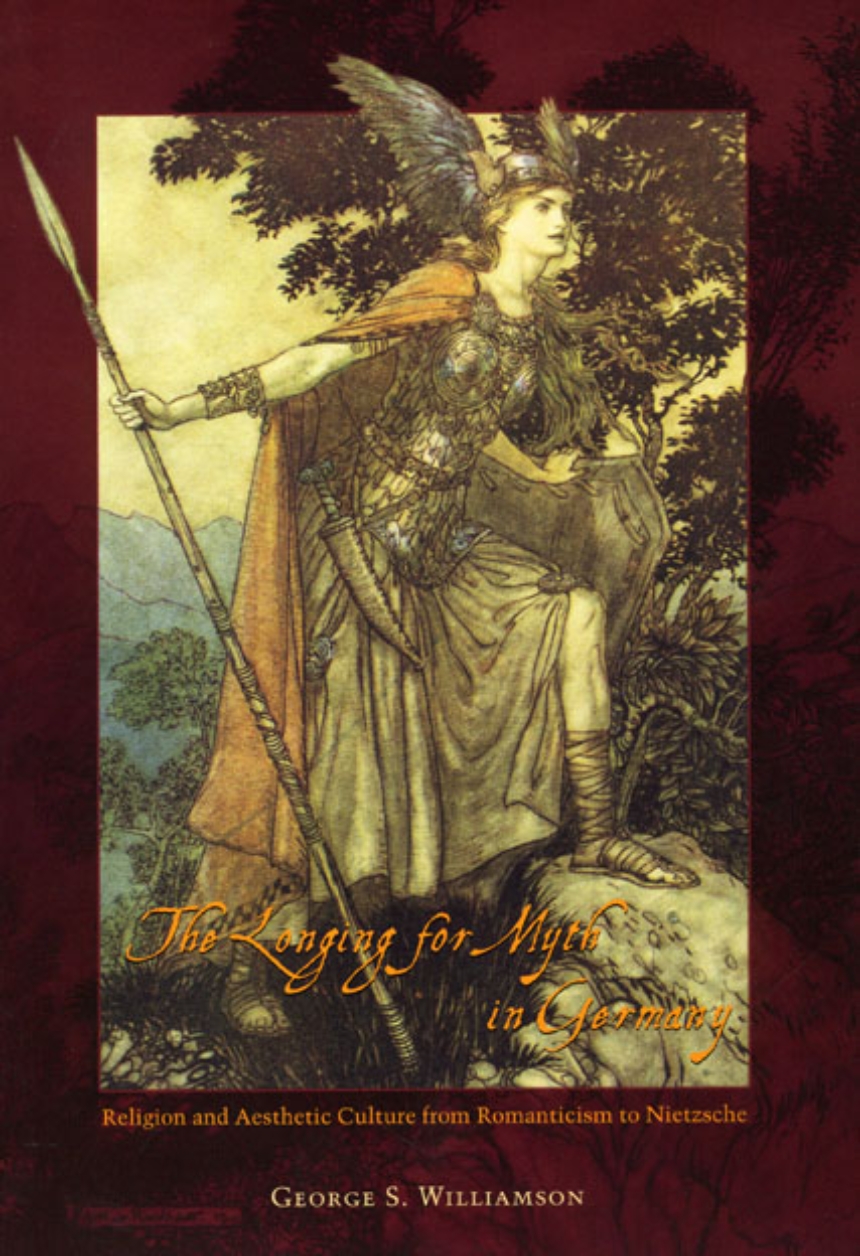The Longing for Myth in Germany
Religion and Aesthetic Culture from Romanticism to Nietzsche
9780226899466
9780226899459
The Longing for Myth in Germany
Religion and Aesthetic Culture from Romanticism to Nietzsche
Since the dawn of Romanticism, artists and intellectuals in Germany have maintained an abiding interest in the gods and myths of antiquity while calling for a new mythology suitable to the modern age. In this study, George S. Williamson examines the factors that gave rise to this distinct and profound longing for myth. In doing so, he demonstrates the entanglement of aesthetic and philosophical ambitions in Germany with some of the major religious conflicts of the nineteenth century.
Through readings of key intellectuals ranging from Herder and Schelling to Wagner and Nietzsche, Williamson highlights three crucial factors in the emergence of the German engagement with myth: the tradition of Philhellenist neohumanism, a critique of contemporary aesthetic and public life as dominated by private interests, and a rejection of the Bible by many Protestant scholars as the product of a foreign, "Oriental" culture. According to Williamson, the discourse on myth in Germany remained bound up with problems of Protestant theology and confessional conflict through the nineteenth century and beyond.
A compelling adventure in intellectual history, this study uncovers the foundations of Germany’s fascination with myth and its enduring cultural legacy.
Through readings of key intellectuals ranging from Herder and Schelling to Wagner and Nietzsche, Williamson highlights three crucial factors in the emergence of the German engagement with myth: the tradition of Philhellenist neohumanism, a critique of contemporary aesthetic and public life as dominated by private interests, and a rejection of the Bible by many Protestant scholars as the product of a foreign, "Oriental" culture. According to Williamson, the discourse on myth in Germany remained bound up with problems of Protestant theology and confessional conflict through the nineteenth century and beyond.
A compelling adventure in intellectual history, this study uncovers the foundations of Germany’s fascination with myth and its enduring cultural legacy.
376 pages | 25 halftones | 6 x 9 | © 2004
Culture Studies:
History: European History, History of Ideas
Language and Linguistics: Language History and Language Universals
Philosophy: Aesthetics, History and Classic Works
Religion: Religion and Society
Reviews
Table of Contents
Acknowledgments
Abbreviations
Introduction
1. Theophany and Revolution: The Romantics Turn to Myth
2. The Construction of a National Mythology:
The Romantic and Vormärz Eras
3. Olympus under Siege: Creuzer’s Symbolik and The Politics of the Restoration
4. From Scriptual Revelation to Messianic Myth:
The Bible in Vormärz
5. Richard Wagner and Revolutionary Humanism
6. Myth and Monotheism in the Unification Era, 1850-1880
Nietzsche’s Kulturkampf
Epilogue
Notes
Selected Bibliography
Index
Abbreviations
Introduction
1. Theophany and Revolution: The Romantics Turn to Myth
2. The Construction of a National Mythology:
The Romantic and Vormärz Eras
3. Olympus under Siege: Creuzer’s Symbolik and The Politics of the Restoration
4. From Scriptual Revelation to Messianic Myth:
The Bible in Vormärz
5. Richard Wagner and Revolutionary Humanism
6. Myth and Monotheism in the Unification Era, 1850-1880
Nietzsche’s Kulturkampf
Epilogue
Notes
Selected Bibliography
Index
